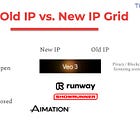The Silence Around SpongeBob Tells You Everything
Three weeks into Sora's launch, all the controversy is about celebrity likenesses. Zero outrage over fictional characters. That silence signals catastrophic devaluation for billion-dollar IP.
[Author’s Note: I used Google’s Gemini to run game theory on the AI marketplace by comparing it to craft beer economics. The insights explain what’s happening right now. Platinum members: I’ve built a presentation breaking down the full analysis. Email coming soon about a Wednesday Zoom call where we’ll walk through it together.]
This past weekend’s headlines about OpenAI’s Sora focused on celebrity likenesses—MLK, Bryan Cranston—and not fictional characters. There was no outrage over legacy media IP that studios spent billions building, like SpongeBob Squarepants, Pokémon Pikachu, or Ronald McDonald.
Instead, all the controversy is about celebrity likenesses—real people, not fictional characters. That gap suggests something radical: In the “new medium” of AI platforms, real people might be worth more than legacy media IP.
This is emerging as a key market dynamic only three weeks into Sora’s launch as an app. If consumers prefer likenesses to legacy media IP in generative AI, then we must sit up and pay attention. Because a shift in consumer behavior away from fictional IP to celebrity likenesses suggests we are in the early stages of a catastrophic devaluation event for legacy IP.
Real Celebrities Beat Fictional Characters
Recent deals with Hollywood talent and their representation prove that talent agencies and estates—and not studios—have leverage over OpenAI.







